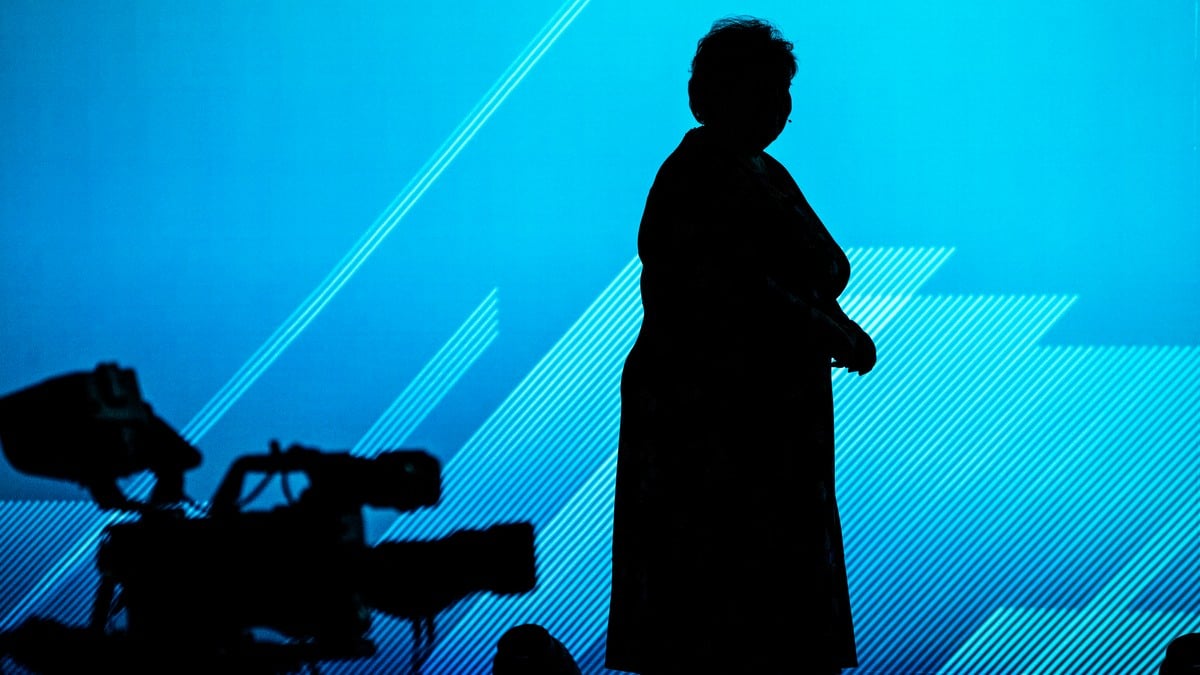It is demanding to govern a country. Exhausting to be head of government in a crisis. Inhuman to rule a country in a crisis in the second year. Everything in addition to the daily operation.
Therefore, it is understandable that it has not gone smoothly, even for detail-focused Erna Solberg who rarely makes mistakes. This semester, she has made several major mistakes that are noticeable.
It does not have to mean that she is neither tired nor finished, but it will be easier than ever to ask the question if that is the case. And the answer does not look happy, if you check the June measurements.
Self-inflicted errors
Many of the mistakes Solberg has had to contend with this spring were due to mistakes made by herself, or people close to her.
The Prime Minister’s own breach of the infection control rules below the birthday celebration in Geilo, is the most famous.
At the Minister of Health did not want to follow up the government’s own contingency strategy and was vaccinated earlier by virtue of being a key personnel, the government did not do very well either. A handling error.
It started earlier in the spring when a state secretary at the Prime Minister’s office wanted to help the Molde mayor in contact with VG about the unequal distribution of vaccines in Oslo’s favor. Solberg called the State Secretary’s action «contrary to»Government policy.
Much more serious are the mistakes that were made in the government’s work with the Bergen Engine case and the case of the appointment of the current Minister of Defense Frank Bakke-Jensen as director of fisheries.
The Bergen Engine case is about the government failing to coordinate and see that the legislation can and must be used to stop a case that could potentially pose a danger to national security. The Storting believes that they received insufficient information about the case.
The appointment of the Director of Fisheries is about a minister who, with the Prime Minister’s knowledge and approval, applies for a profiled job in the civil service, without being on a list of applicants, even though he was in advance to get the job.
– I agree that it should be public when a minister applies for a position, acknowledged Erna Solberg in retrospect.
–
–
The minority government pressured by the Storting
Solberg lost some control already in the third week of January, almost a year after she led a majority government without a pandemic.
The opposition in the Storting passed a number of measures against the will of the government. Among other things, a completely new and more expensive facility for crisis measures. In addition, the government was ordered to open for serving alcohol with food in restaurants in areas with little infection, according to a kind of constructed popular requirement.
There were mumblings about parliamentary government, but when the outbreak in Nordre Follo was a fact, it was not exactly in the opposition’s interest to brag too loudly, either.
It was nevertheless a kind of warning about something the minority government would get more of this half year:
Holiday pay for lay-offs, more money to retirees, cheaper ferry tickets, pension from the first krone was also pushed forward from the opposition in the Storting.
–
–
Less cohesion, partners pay dearly for responsibility
On the bourgeois side, the contours of a joint project are smaller than before. It is not just that the government has not succeeded in getting a majority behind important long-term documents such as National Transport Plan and climate reports where the distance to Frp is too great.
This is also due to the fact that KrF has a great need to distance itself from key government decisions such as drug reform and free school choice.
All of the Conservatives’ three partners, who are to secure a budget majority, have had to pay a high price for government responsibility. KrF and Venstre suffered from government wear and tear long before they became government parties, and Frp is not so surprisingly able to get rid of the governing party stamp.
Frp caver around the 10s, the other two around the barrier border. The election year spring has therefore triggered the natural effect that three out of four parties on the bourgeois side must first and foremost think of themselves. They can not afford to put any cooperation and common good before their own needs.
The National Assembly resolutions also carry bids for four parties that want to cultivate their own profile. KrF strengthens value policy, Venstre wants to be more liberal. The FRP is in opposition to “deer climate measures”, the Conservatives and the Liberals embrace carbon capture and storage and electricity from land to the oil platforms. The FRP does not want tax increases, the Liberal Party wants climate taxes to reduce emissions. Among other things.
Opinion poll June 2021
for National
Change compared to April 2021
Other parties: 3.2%
Done May 26-11. June
― 11,400 responses
—
Read more about NRK’s opinion polls–
–
–
Hoping for positivity
In any case, the four bourgeois parties have ruled Norway in various governing bodies for eight years. They have been re-elected once and agreed on 16 budget documents and a number of common policies. This is undoubtedly due to good navigation by the Prime Minister. She and the party are proud and at the same time hungry for more.
Now the government’s hope hangs in that this half year is forgotten after the summer, that reopening and positivity in society will contribute to a different awareness of the government and common policies around job creation in the private sector and emission cuts through business restructuring.
Pragmatism and oil money have given Solberg almost eight years in power. Few believed when she walked through the streets of Oslo on election night 2013.
Externally, this has been Solberg’s worst half year.
If not much turns around, it will be her last completed six months as prime minister.
–


